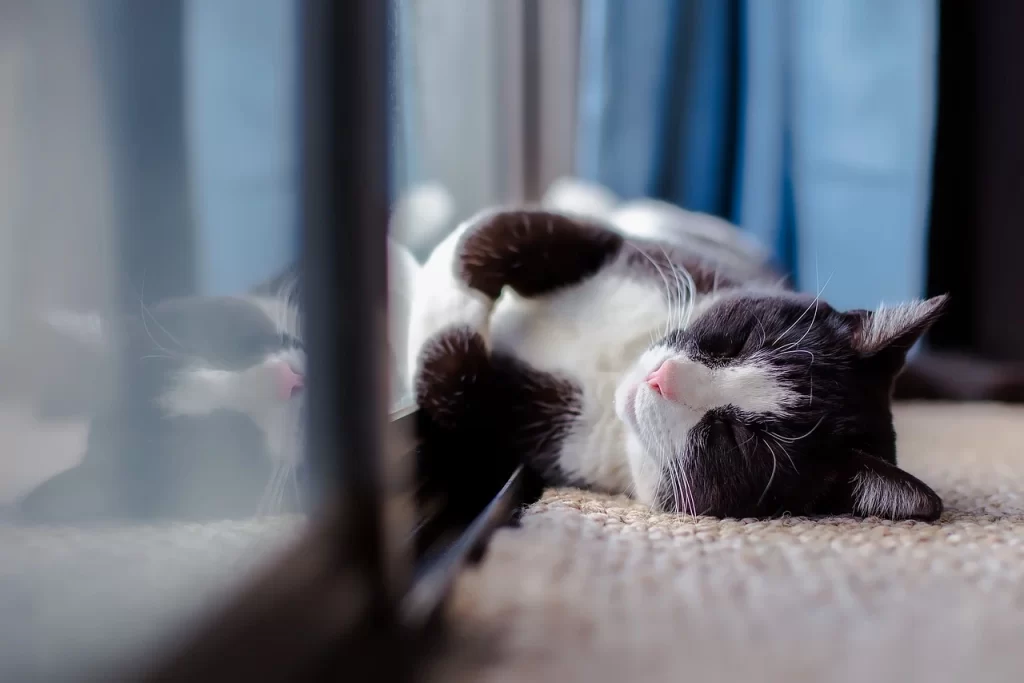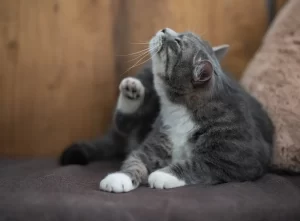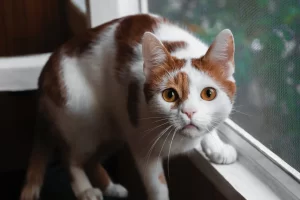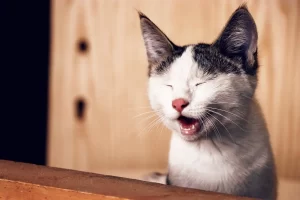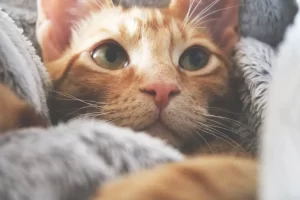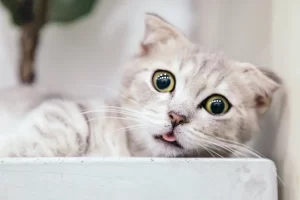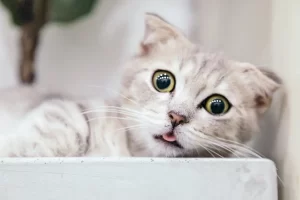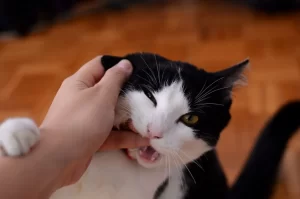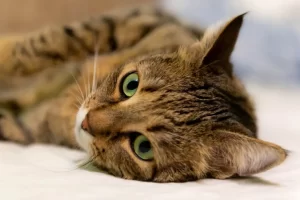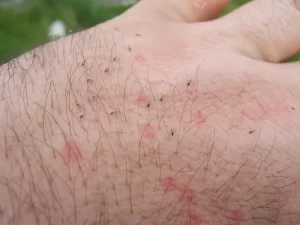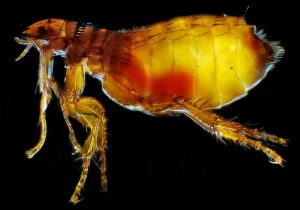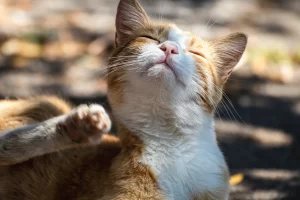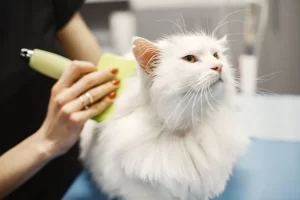Liver disease in cats can have serious consequences if left untreated, and it is essential for pet owners to be knowledgeable about the condition and the various treatments available. One such approach to treating liver disease in cats is through the use of home treatments and remedies. In this article, we will discuss the importance of dietary management, supplement and medication options, proper hydration, avoiding toxic substances, and more, as well as explore the potential benefits of natural and herbal remedies for cat liver disease. By incorporating these home treatments and remedies into your cat’s care plan, you can help support their liver function and reduce symptoms associated with liver disease.
Table of Contents
ToggleDefinition and causes of liver disease in cats
Liver disease in cats refers to any condition that affects the normal functioning of the liver, which is a vital organ responsible for many important functions in the body.
Here are some common causes of liver disease in cats:
- Fatty liver disease: This occurs when fat accumulates in the liver, leading to inflammation and cell damage. Fatty liver disease can be caused by rapid weight loss, a high-fat diet, or other underlying conditions such as diabetes and may be treated at home using home and natural remedies.
- Hepatic lipidosis: Also known as a fatty liver syndrome, this condition is characterized by an excessive accumulation of fat in the liver, leading to liver failure. It is often associated with anorexia or weight loss in cats.
- Chronic liver disease: This is a progressive condition that can be caused by a variety of factors, including long-term exposure to toxins, viral or bacterial infections, or the formation of liver tumors.
- Inflammatory liver disease: Inflammation in the liver can be caused by infections, autoimmune diseases, or exposure to certain toxins. This type of liver disease can cause scarring and permanent damage to the liver.
- Congenital liver disease: Some cats are born with genetic defects that affect liver function and can lead to liver disease over time.
- Toxins: Exposure to toxins such as antifreeze, certain plants, and certain medications can cause liver damage and disease.
- Cancer: Liver tumors can form in the liver and disrupt normal liver function. If your cat has cancer, check out these homeopathic cancer treatments.
It is important to note that liver disease in cats can have a wide range of causes and may be associated with other underlying health conditions.
Signs and symptoms of liver disease in cats
The signs and symptoms of liver disease in cats can vary depending on the underlying cause and the severity of the condition. Here are some common signs and symptoms of liver disease in cats:
- Loss of appetite: Cats with liver disease may have a decreased interest in food, leading to weight loss.
- Vomiting: This can occur due to nausea or the buildup of toxins in the body.
- Diarrhea: As the liver becomes unable to process toxins properly, they can build up in the intestines and cause diarrhea.
- Jaundice: This is a yellow discoloration of the skin and whites of the eyes caused by an accumulation of bilirubin in the blood. These home treatments and natural remedies may help you to get rid of Jaundice in your cat.
- Abdominal swelling: As the liver becomes enlarged, it can cause abdominal swelling.
- Dehydration: Cats with liver disease may drink less water and urinate less, leading to dehydration.
- Lethargy: Cats with liver disease may become tired and lethargic as the liver becomes unable to produce enough energy. You may be able to partially boost their energy back by following these natural remedies.
- Changes in behavior: Cats with liver disease may become more irritable or less active.
- Bad breath: Cats with liver disease may have a distinct, musty odor to their breath.
Risk factors for liver disease in cats
There are several risk factors that can increase the likelihood of liver disease in cats. Some of the most common include:
- Age: As cats age, their liver function may decline, making them more susceptible to liver disease.
- Obesity: Overweight cats are more likely to develop the liver disease as a result of excess fat accumulation in the liver.
- Poor nutrition: Cats that are not receiving a balanced diet with adequate nutrients may be more prone to liver disease.
- Chronic illness: Cats with chronic illnesses, such as diabetes or kidney disease, may be more likely to develop liver disease.
- Exposure to toxins: Exposure to toxins such as antifreeze, certain plants, and certain medications can cause liver damage and disease.
- Genetics: Some breeds of cats, such as Siamese and Persians, are predisposed to liver disease.
- Chronic stress: Chronic stress can weaken the immune system and increase the risk of liver disease.
Herbal and natural remedies for liver disease in cats
Herbal and natural remedies are alternative treatments that some pet owners may consider for cats with liver disease. However, it is important to keep in mind that these remedies have not been scientifically proven for use in cats and should not be used as a substitute for veterinary care.
Here is a list of some natural and herbal remedies that may be used for cats with liver disease:
- Milk Thistle: Milk thistle is a plant that is believed to have liver-protective properties. The active ingredient in milk thistle, silymarin, is thought to help support liver function and reduce liver damage. It can be administered orally in the form of capsules, tinctures, or liquids.
- Dandelion: Dandelion is a plant that is believed to have liver-protective properties and can help support liver function. Dandelion can be given orally in the form of teas, tinctures, or supplements.
- Licorice Root: Licorice root is believed to have anti-inflammatory and liver-protective properties. Licorice root can be given orally in the form of teas, tinctures, or supplements.
- Turmeric: Turmeric is a spice that is believed to have anti-inflammatory and liver-protective properties. Turmeric can be given orally in the form of supplements or added to the cat’s food.
- N-Acetyl Cysteine (NAC): NAC is an amino acid that is believed to have liver-protective properties. NAC can be given orally in the form of supplements.
- Ginger: Ginger is believed to have anti-inflammatory properties and can help reduce nausea, which is a common symptom of liver disease in cats. Ginger can be given orally in the form of teas, tinctures, or supplements.
- Burdock Root: Burdock root is believed to have liver-protective properties and can help support liver function. Burdock root can be given orally in the form of teas, tinctures, or supplements.
- Yellow Dock: Yellow dock is believed to have liver-protective properties and can help support liver function. Yellow dock can be given orally in the form of teas, tinctures, or supplements.
- Red Clover: Red clover is believed to have liver-protective properties and can help support liver function. Red clover can be given orally in the form of teas, tinctures, or supplements.
- Artichoke: Artichoke is believed to have liver-protective properties and can help support liver function. Artichoke can be given orally in the form of teas, tinctures, or supplements.
- Antioxidant-rich Fruits and Vegetables: Antioxidants such as vitamin C, vitamin E, and beta-carotene can help protect the liver from damage and support liver function. These can be added to the cat’s diet in the form of fresh fruits and vegetables or supplements.
- Beets and Carrots: Beets and carrots are rich in antioxidants and contain betaine, which is believed to have liver-protective properties. They can be added to the diet by incorporating them into meals such as salads, soups, or smoothies.
- Garlic: Garlic is believed to have liver-protective properties and can help reduce inflammation. It can be added to the cat’s food or given as a supplement in small doses. It is important to talk to a veterinarian before starting any new supplement or herb, as it can interact with other medications.
- Cruciferous Vegetables: Cruciferous vegetables such as broccoli, cauliflower, and brussels sprouts contain compounds that are believed to have liver-protective properties. These vegetables can be offered to the cat in small amounts as a treat or mixed into their food.
- Green Tea: Green tea is rich in antioxidants and is believed to have liver-protective properties. It can be given to the cat in small amounts as a treat or incorporated into their food. It is important to remember that tea contains caffeine, which can be toxic to cats in large amounts, so it should always be given in moderation.
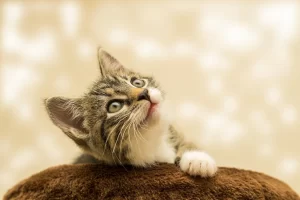
Home treatments for liver disease in cats
The treatment of liver disease in cats will depend on the underlying cause and the severity of the condition. Here are some of the most common home remedies and treatments for liver disease in cats:
- Diet: Feeding a balanced, liver-friendly diet can help support liver function and reduce the risk of liver disease.
- Supplements: Adding supplements such as milk thistle, SAMe, and omega-3 fatty acids to the diet can support liver function.
- Hydration: Encouraging your cat to drink more water can help flush toxins from the body and support liver function.
- Avoid toxins: Minimize exposure to toxins such as antifreeze and certain plants, and keep medication usage to a minimum.
- Weight management: Maintaining a healthy weight can reduce the risk of liver disease and support liver function.
- Exercise: Regular exercise can help maintain a healthy weight and reduce stress.
- Reduce stress: Minimizing stress in your cat’s life can support overall health and reduce the risk of liver disease.
- Probiotics: Adding probiotics to the diet can help support gut health and reduce the risk of liver disease.
- Vitamin E: Adding vitamin E to the diet can help support liver function and reduce oxidative stress.
- Dandelion: Dandelion is a natural diuretic that can help support liver function and flush toxins from the body.
Importance of dietary management in liver disease
Dietary management is an important aspect of treatment for liver disease in cats. A balanced diet can help support liver function, reduce oxidative stress, and reduce the risk of liver disease.
- Liver-friendly diet: Feeding a liver-friendly diet that is low in copper and high in antioxidants, such as vitamins E and C, can help support liver function.
- High-quality protein: Feeding a diet high in high-quality protein can help support liver function and reduce the risk of liver disease.
- Reduced phosphorus: Feeding a diet low in phosphorus can help support liver function and reduce the risk of liver disease.
- Reduced copper: Feeding a diet low in copper can help reduce oxidative stress and reduce the risk of liver disease.
- Hydration: Encouraging your cat to drink more water can help flush toxins from the body and support liver function.
- Supplements: Adding supplements such as milk thistle, SAMe, and omega-3 fatty acids to the diet can support liver function.
Supplements and medications for liver disease in cats
Supplements and medications can be an important part of the treatment of liver disease in cats. Here is a list of some of the most commonly used supplements and medications for liver disease in cats:
- Milk thistle: Milk thistle is a supplement that is rich in silymarin, a natural antioxidant that can support liver function.
- SAMe: SAMe is a supplement that can support liver function and reduce oxidative stress.
- Omega-3 fatty acids: Omega-3 fatty acids are essential fatty acids that can help reduce oxidative stress and support liver function.
- Vitamin E: Vitamin E is an antioxidant that can help support liver function and reduce oxidative stress.
- Vitamin C: Vitamin C is an antioxidant that can help support liver function and reduce oxidative stress.
- Probiotics: Probiotics can help support gut health and reduce the risk of liver disease.
- Antioxidants: Antioxidants such as vitamin E, vitamin C, and omega-3 fatty acids can help support liver function and reduce oxidative stress.
- Antibiotics: Antibiotics may be prescribed to treat infections that can contribute to liver disease.
- Anti-inflammatory medication: Anti-inflammatory medication may be prescribed to reduce inflammation in the liver.
- Ursodeoxycholic acid (UDCA): UDCA is a bile acid that can help support liver function and reduce oxidative stress.
It is important to consult with a veterinarian before starting any supplements or medications for liver disease in cats.
Proper hydration for cats with liver disease
Proper hydration is important for cats with liver disease as it helps flush toxins from the body and support liver function. Here are some tips for ensuring proper hydration in cats with liver disease:
- Increase water intake: Encourage your cat to drink more water by providing clean, fresh water in multiple locations and changing it regularly.
- Offer wet food: Offer wet food, which has a higher water content than dry food, to help increase your cat’s water intake.
- Provide water fountains: Consider providing a water fountain, as some cats prefer to drink running water.
- Offer electrolyte solutions: Offer an electrolyte solution, such as Pedialyte, to help replace lost fluids and minerals.
- Avoid dehydration: Be mindful of potential sources of dehydration, such as high temperatures, lack of access to water, and illness.
Importance of avoiding drugs and substances toxic to the liver
Avoiding drugs and substances that are toxic to the liver is important for cats with liver disease as it can help reduce further liver damage and promote liver health. Here are some substances and drugs to avoid in cats with liver disease:
- Tylenol (acetaminophen): Tylenol is toxic to cats and can cause liver damage.
- Certain herbs: Certain herbs, such as comfrey, mistletoe, and pennyroyal, can be toxic to the liver in cats.
- Certain pesticides: Certain pesticides, such as carbamates and organophosphates, can be toxic to the liver in cats.
- Certain human medications: Certain human medications, such as ibuprofen and aspirin, can be toxic to the liver in cats.
- Alcohol: Alcohol can be toxic to the liver in cats and should be avoided.
- Certain foods: Certain foods, such as onions and garlic, can be toxic to the liver in cats.
Maintaining a healthy weight for cats with liver disease
Keeping a cat at a healthy weight is important for cats with liver disease as obesity can worsen liver disease and put additional stress on the liver. Here are some tips for keeping a cat at a healthy weight:
- Feed a balanced diet: Feed a balanced, nutrient-rich diet to help maintain a healthy weight. Your veterinarian may recommend a specialized diet for cats with liver disease.
- Control portion sizes: Control portion sizes to prevent overfeeding and maintain a healthy weight.
- Avoid table scraps: Avoid feeding table scraps, as they can add excess calories and lead to weight gain.
- Increase exercise: Increase exercise to help maintain a healthy weight and promote overall health.
- Monitor weight regularly: Monitor your cat’s weight regularly to ensure they are maintaining a healthy weight.
Active lifestyle for cats with liver disease
Encouraging exercise and activity is important for cats with liver disease as it can help maintain a healthy weight, improve circulation, and promote overall well-being. Here are some tips for encouraging exercise and activity in cats with liver disease:
- Playtime: Encourage playtime with toys, such as interactive toys and wand toys.
- Routine: Establish a routine of daily play and exercise to help promote physical activity.
- Scratching posts: Provide scratching posts and climbing structures to encourage physical activity.
- Interactive feeders: Use interactive feeders, such as puzzle feeders, to encourage physical activity and mental stimulation.
- Lured play: Use food or treats to lure your cat into activity and play.
Creating a stress-free environment for cats with liver disease
Reducing stress and creating a comfortable environment can be important for cats with liver disease. Stress can contribute to the progression of liver disease and can make existing symptoms worse. Here are some tips for reducing stress and creating a comfortable environment for cats with liver disease:
- Provide a quiet and calm environment: Keep the cat’s living space quiet and calm, away from loud noises and other sources of stress.
- Establish a routine: Establishing a routine can help reduce stress and promote a sense of security for the cat.
- Regular playtime: Regular playtime can help reduce stress and improve mood.
- Comfort items: Providing comfort items, such as a cozy bed or blanket, can help create a comfortable environment for the cat.
- Minimize changes in the environment: Minimize changes in the cat’s environment as much as possible to reduce stress and uncertainty.
- Reduce handling: Reduce handling and avoid rough handling, as this can cause stress for the cat.
Managing secondary infections in cats with liver disease
Monitoring and managing secondary infections is important for cats with liver disease as liver disease can compromise the immune system, making cats more susceptible to infections. Here are some tips for monitoring and managing secondary infections in cats with liver disease:
- Watch for signs of infection: Watch for signs of infection, such as fever, lethargy, loss of appetite, and vomiting.
- Regular check-ups: Schedule regular check-ups with a veterinarian to monitor for any signs of infection. Read more on How often should I take my cat to the vet?
- Keep the environment clean: Keep the cat’s environment clean and free of sources of infection, such as dirty litter boxes and contaminated food and water bowls.
- Vaccinations: Ensure that your cat is up-to-date on their vaccinations to help prevent infections.
- Antibiotics: If an infection is detected, your veterinarian may prescribe antibiotics to treat the infection.
Medications to support liver function and reduce symptoms
Medications can play an important role in supporting liver function and reducing symptoms in cats with liver disease. Here is a list of common medications used to support liver function and reduce symptoms in cats with liver disease:
- Ursodeoxycholic acid (UDCA): This medication can help reduce inflammation and improve bile flow, which can improve liver function.
- Vitamin K: This vitamin is important for blood clotting and may be prescribed if your cat has a liver disease that affects blood clotting.
- Antioxidants: Antioxidants, such as S-adenosylmethionine (SAMe) and N-acetylcysteine (NAC), can help reduce liver damage and promote liver health.
- Antibiotics: Antibiotics may be prescribed to treat secondary infections.
- Anti-nausea medication: Anti-nausea medication, such as maropitant, can help relieve nausea and vomiting associated with liver disease.
- Pain medication: Pain medication may be prescribed to relieve discomfort and improve quality of life in cats with liver disease.
Monitoring for and treating blood clotting disorders
In cats with liver disease, it is important to monitor for and treat blood clotting disorders as they can occur as a complication of liver disease. Blood clotting disorders can lead to serious complications, such as blood clots and stroke, and can be life-threatening if left untreated. Here are some important things to consider for monitoring and treating blood clotting disorders in cats with liver disease:
- Monitoring for signs of clotting disorders: Look for signs of clotting disorders, such as difficulty breathing, sudden weakness, or collapse.
- Blood testing: Blood tests can be used to monitor for clotting disorders and to check for changes in clotting times.
- Vitamin K supplementation: Vitamin K supplementation can be prescribed to help improve blood clotting and prevent clotting disorders.
- Blood thinning medication: Blood thinning medication, such as heparin or warfarin, may be prescribed to prevent blood clots.
Potential for liver transplantation in cats
Liver transplantation is a potential treatment option for cats with liver disease, although it is a rare and complex procedure that requires specialized expertise and equipment. Liver transplantation involves the removal of a diseased liver and its replacement with a healthy liver from a donor cat.
The potential benefits of liver transplantation for cats include improved liver function, reduced symptoms, and improved quality of life. However, liver transplantation is a major procedure that carries risks, such as surgical complications and rejection of the transplanted liver.
The cost of liver transplantation for cats can vary widely depending on the specific circumstances of the case, such as the location of the procedure, the expertise of the surgeon, and the overall health of the cat. However, liver transplantation is generally considered a very expensive procedure, with cost ranges typically in the tens of thousands of dollars.
Vitamins and mineral supplements
Administering regular vitamin and mineral supplements can be beneficial for cats with liver disease, as liver disease can result in deficiencies of certain nutrients. Here is a list of some vitamins and minerals that may be recommended for cats with liver disease:
- Vitamin B12: Vitamin B12 is important for liver function and can be deficient in cats with liver disease.
- Vitamin E: Vitamin E is an antioxidant that can help protect the liver from damage.
- Vitamin K: Vitamin K is important for blood clotting and may be deficient in cats with liver disease.
- Folate: Folate is important for liver function and can be deficient in cats with liver disease.
- Zinc: Zinc is important for liver function and can be deficient in cats with liver disease.
- Copper: Copper is important for liver function and can be deficient in cats with liver disease.
- Selenium: Selenium is an antioxidant that can help protect the liver from damage.
It is important to work with a veterinarian to determine the appropriate doses of vitamins and minerals for a cat with liver disease, as excessive supplementation can be harmful.
Potential complications of cats with liver disease if left untreated
Liver disease in cats can lead to various complications if left untreated, including:
- Cirrhosis: Prolonged liver damage can cause scarring of the liver tissue, which is known as cirrhosis. Cirrhosis interferes with normal liver function and can result in further liver damage.
- Portal Hypertension: Chronic liver damage can lead to increased pressure in the blood vessels that run through the liver, which is known as portal hypertension. This can lead to the development of life-threatening bleeding disorders.
- Liver Failure: In severe cases, liver disease can progress to liver failure, where the liver is unable to function properly, leading to a buildup of toxins in the bloodstream and other organs.
- Infections: Cats with liver disease are more susceptible to infections as a result of a weakened immune system.
- Cancer: Chronic liver disease can increase the risk of liver cancer in cats.
- Metabolic Disorders: The liver plays a crucial role in regulating metabolism, and liver disease can lead to a range of metabolic disorders, including diabetes, hypoglycemia, and electrolyte imbalances.
- Uremia: If the liver disease progresses to liver failure, the kidneys may become overburdened and unable to remove waste products from the bloodstream, leading to uremia.
- Anemia: Chronic liver disease can cause a decreased production of red blood cells, leading to anemia.
- Decreased Appetite and Weight Loss: Cats with liver disease may experience a decreased appetite and weight loss, leading to malnutrition.
- Vomiting and Diarrhea: Liver disease can cause digestive problems such as vomiting and diarrhea.
Early diagnosis and treatment of liver disease in cats is important in reducing the risk of these complications and improving the prognosis for the cat.
Which vet to visit with what expertise
It’s best to visit a veterinarian who has experience and expertise in treating liver disease in cats. A veterinary specialist in internal medicine, also known as a veterinary gastroenterologist, would be best equipped to diagnose and treat liver disease in cats. If a liver transplant is being considered, a veterinary surgeon with experience in performing liver transplants may also be involved. It’s important to choose a veterinarian who you feel comfortable working with and who you trust to provide the best care for your cat.

